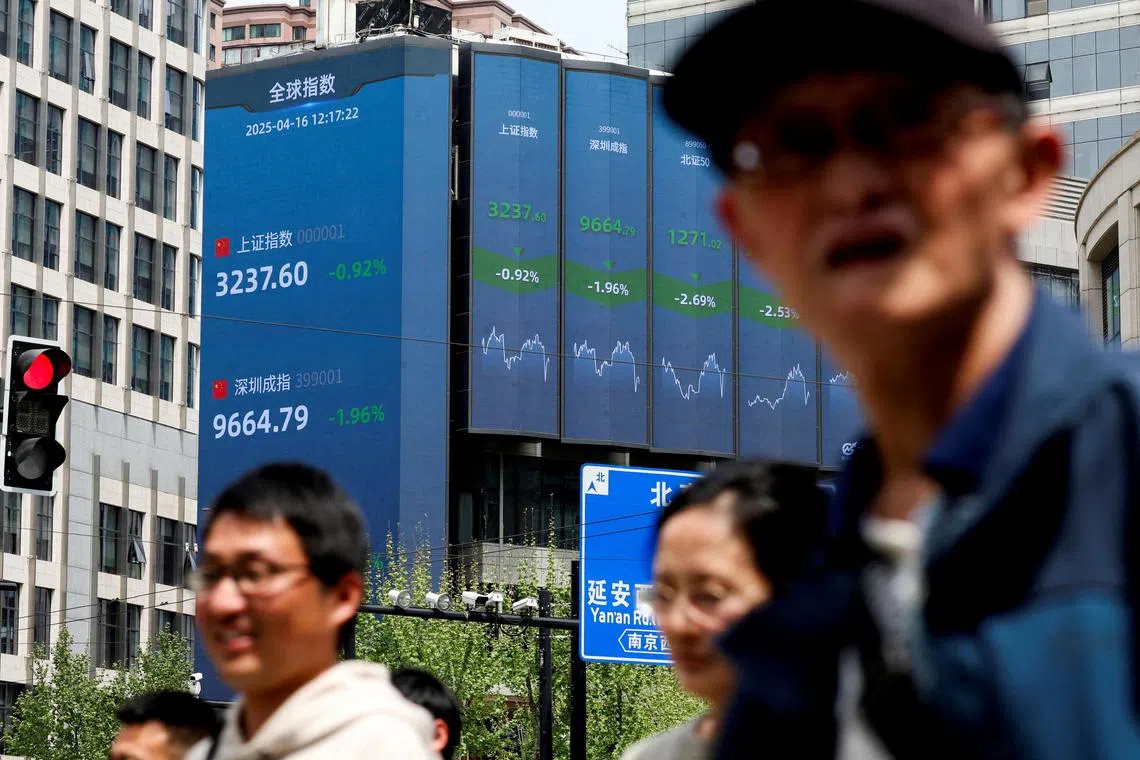China banks warn about using credit cards to fund stock trading as bubble fears grow
Sign up now: Get ST's newsletters delivered to your inbox

Chinese stocks added more than US$1 trillion in market value in August alone, with red flags raised on the sustainability of the rally.
PHOTO: REUTERS
Follow topic:
BEIJING – China’s commercial banks are tightening oversight of clients using credit cards to fund stock investments as small-time investors pour in to catch the nation’s US$1 trillion (S$1.3 trillion) market rally.
Lenders, including China Minsheng Banking and Huaxia Bank, warned over the past month that credit card funds and cash advances cannot be used for investments, among other prohibited areas, according to statements seen by Bloomberg News. Any violations could lead to the transactions being cancelled and to restrictions on card use, they said.
The move – a reiteration of a 2022 rule that orders strict control of credit card funds – joins recent curbs by some of the nation’s brokerages and fund houses to cut back on financing and limit stock purchases.
Chinese stocks added more than US$1 trillion in market value in August alone, with signals from margin trades to volumes all sending red flags on the sustainability of the rally.
It is unclear whether the recent moves are a result of regulatory guidance. The Chinese authorities have a track record of intervening when the market is seen overheated or oversold, to maintain stability in stocks.
Credit card funds are high-cost, short-term debt, which could significantly amplify debt risks if used for stock investments, state-backed Securities Daily said in an editorial on Aug 28.
The report pointed out a fundamental mismatch between the short repayment cycles of credit cards – typically around a month – and the long-term nature of stock market investing.
Speculative trades funded by credit card funds will intensify irrational fluctuations in shares, potentially leading to losses by card holders and failure to repay, the newspaper said.
This will ultimately create a disruption of market order and a contagion risk between the stock market and the banking system, which can threaten overall financial stability. BLOOMBERG

